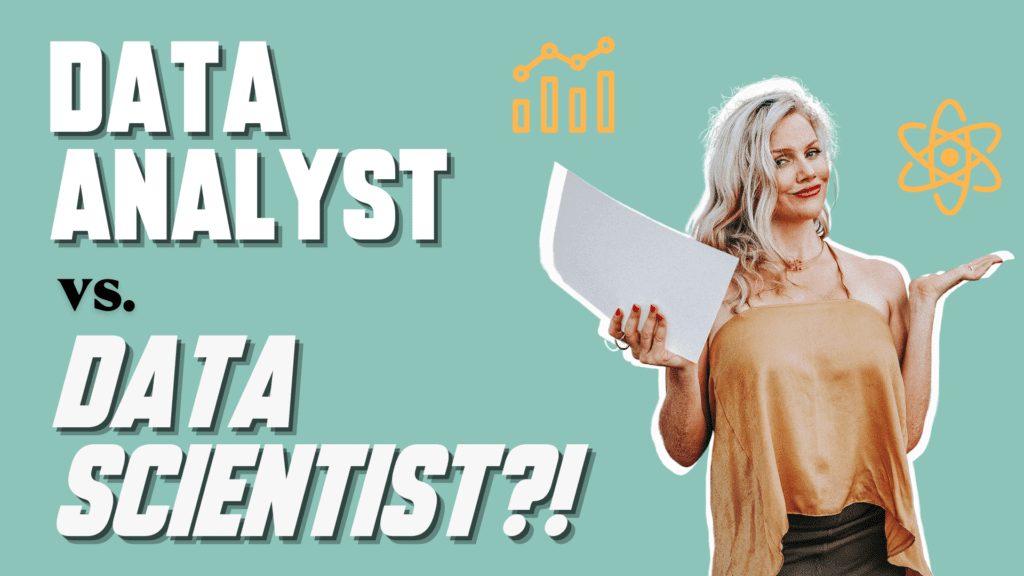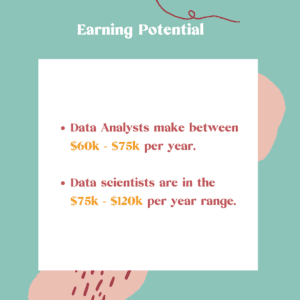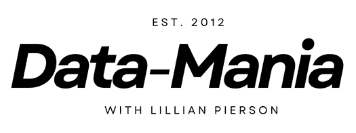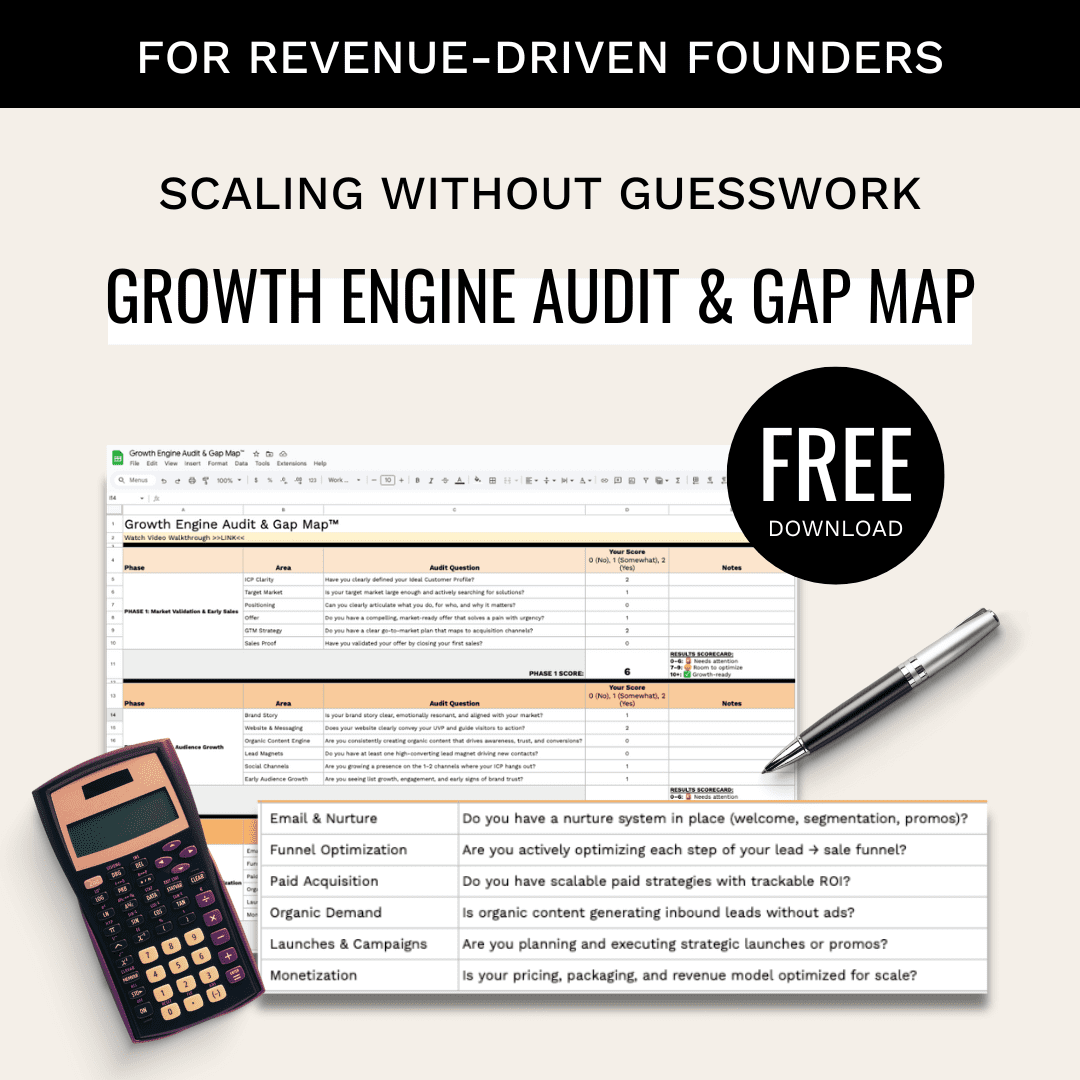Data Scientist vs Data Analyst – which role should you really go after?!

In this article, you’re going to get all the insider information about what each role entails, and more importantly you’ll know some serious stuff you need to consider about yourself before choosing between them!
I’m going to be real with you – lots has changed in the data industry over the last 10 years… and today’s article is FAR different than it would have been even 5 years ago. The bar has definitely been raised.
If you prefer to read instead of watch, then read on…
Now, to determine which role is best suited for your professional and personal goals, you first need to understand the responsibilities of data scientist vs data analyst and then we’ll need to consider some personal aspects that you’ll want to take into account.
Let’s take a look first at the skill sets and requirements of each role…
Role Requirements and Skills
Data analyst requirements and skills:
- Undergraduate degree in STEM is typically a must.
- Tech Skills in programming, math, databases, science, predictive analytics, and modeling.
- Languages—should have experience with R, Python, and SQL
- Consulting Skills—should possess:
- strong analytical skills
- reporting acumen
- ability to manage multiple priorities
- strong communication skills
- Workflows—knows how to work with agile development methodologies and various related pipelines.
Data Scientist Requirements and Skills:
- A STEM degree
- Languages—should have experience with R, Python, and SQL
- Analytical Techniques—should know how to perform various data mining and statistics tasks, including random forest, generalized linear model/regression, trees, boosting, social network analysis, and text mining.
- Data architecture expertise—should have proven experience performing data architecture-level tasks.
- Machine Learning Techniques— artificial neural networks, decision tree learning, deep learning, reinforcement learning, clustering, etc.
- Statistics—a solid understanding of advanced statistical concepts and techniques, such as statistical tests, regression, and properties of distributions.
Requirements and Skills (Senior Level):
In order to get any form of seniority as a data scientist, you’ll want to have at least five years of experience. It’s definitely helpful if you have experience working in a distributed computing environment or using tools for distributed computing.
You’ll also need to have the following:
- Web services— experience using services like S3, Redshift, DigitalOcean, and Spark.
- Analysis experience—prior experience of analyzing data using third-party providers, such as Google Analytics, Crimson Hexagon, Coremetrics, Site Catalyst, Facebook Insights, and AdWords.
- Distributed data/computing tools—prior experience using tools like Hadoop, Gurobi, Hive, Spark, MySQL, and Map/Reduce.
- Visualization Skills —proven experience in presenting visualized data to stakeholders using tools like D3, Periscope, ggplot, and Business Objects.
Data scientists are expected to not only understand data, but to also present their insights to stakeholders and non-data people. In other words, you need to have a pretty sophisticated combination of math, statistics, programming, domain expertise as well as communication and presentation skills that enables you to present your findings to business leaders.
Now, let’s look at the responsibilities associated with each role…
Role Responsibilities
Data Analyst
This depends on what company you’re at or what your exact role is, but some things are consistent across the board.
In its simplest form, the core responsibility of data analysts is analyzing and interpreting insights and data.
But for more details, you’ll be working to:
- Research and analyze consumer data.
- Work and modify customer-centric algorithms in order to meet the needs and expectations of customers
- Analyze large databases and present actionable insights.
- Support business decision-making with insights gathered from ad hoc and recurring analyses.
- Perform tasks related to analytics, such as:
- determining KPIs,
- generating financial reports
- designing and optimizing dashboards.
- Visualize data, goals, and metrics.
- Extract data from warehouses, often via writing SQL queries.

Data Scientist
Data scientists are commonly required to know more statistics than most software engineers and more programming than most statisticians.
A data scientist knows how to run a data science project from beginning to end, performing tasks that require storing and cleaning big data, building predictive models, generating insights, and turning those findings into compelling data stories. That’s what we call data storytelling.
Key responsibilities:
- Mine and analyze company data, providing insights for improving:
- product development
- business strategies
- marketing techniques
- Leverage predictive modeling, providing suggestions that help optimize and increase:
- revenue generation,
- customer engagement
- ad targeting
- Develop custom algorithms and data models.
- Develop processes and tools that help analyze and monitor the performance of models and the accuracy of data.
- Assess data-gathering techniques and evaluate new data sources for accuracy and reliability.
- Test the quality of models and develop A/B testing frameworks for the company.
In other words, data scientists implement models and monitor the results of those models, all while interfacing with various teams across the company.
Your Academic Background
The next thing you need to consider of course is academic requirements. If you want to be a data scientist you don’t necessarily need to have a Master’s or PHD, but then again only 12% of data scientists have less than that. It would be a good idea, if you want to be a data scientist, for you to go back and get an advanced degree in either data science, statistics or computer science.
If you know for sure that you definitely do not want to go back to school, it’s not a problem. You’ll probably just want to head toward the data analyst type role if you don’t already have one of those degrees.
Your Interests
Another important thing to take into account when choosing between data scientist vs data analyst, is your natural interests. You have to ask yourself:
Are you more interested in statistics and numbers? Or Are you more interested in business and computer science?
In all honesty, the crux of a data analyst position is centered around numbers and statistics. Don’t get me wrong, you need all of the same numbers and statistics in order to be a data scientist but the focus and crux of a data scientist role is a bit shifted up, it’s taken up a notch – because you’re also gonna be responsible for business knowledge as well as computer science expertise.
A data analyst, of course, does need to understand their company, but they don’t need to be as well-versed in business processes and computer science as a data scientist is.
It’s really up to you right now to look at yourself and think, “What lights me up? Is it business or is it math?”
If that’s you, and you’re finding yourself leaning more and more towards the data scientist role, then you’re probably gonna love the video I did on the Data Science career path and all of the killer opportunities that you’re gonna find on that path. You can watch it here.
Let’s take a minute to talk about earning capacity, shall we?
Your Earning Capacity

According to the 2021 research I did on Indeed.com, data analysts are making between $60k – $75k per year in the US, that is compared to data scientists are in the $75k – $120k per year.
Keep in mind that these are just basic numbers to get you started up in your career and there’s still plenty of room for you to grow and hit multiple-6 figures in terms of annual compensation in your data career.
Last but not least, you have to take into consideration your personality and passions…
Your Personality and Passions
It may seem a bit odd to talk about your personality traits when we are talking about whether or not you should become a data scientist or a data analyst. I mean, is there a job out there that’s more analytical and cut and dry than data analyst or data scientist?
But that’s exactly why you have to take your personality into account. In all honesty, ignoring your feelings in what lights you up inside is a recipe for unhappiness.
It really seems like everyone is trying to get data science skills these days and that the reason they think they want these skills is so that they want to be data scientists. That makes sense, however, hindsight is always 20:20.
I did that too, back in 2012, when I had all the data science skills that I needed, I realized I wouldn’t be happy working as a data scientist.
That’s because I have the personality type where I’m only satisfied and happy if I can see that the work that I’m doing on a daily basis is actually having a positive impact on the lives of others. And I need a lot closer contact with people than a typical data scientist role can provide me.
So, in case you haven’t heard of my story, instead of going for a second interview with Facebook for a data implementation position in Menlo Park, I decided to move to Thailand and bootstrap my data business from (almost) scratch.
That was 8 years ago, I’m still a data entrepreneur – that’s my personality, my inner data superhero type. And I’ve been blessed enough to have the chance to positively impact over 1M data professionals so far, all while making great money as well.
Final Thoughts
My point is, you don’t necessarily have to choose whether to become data scientist vs data analyst. You have way, way more opportunities available to you than those two roles. Actually, I bet you didn’t know that there are actually 50 different types of data roles and most of them are pretty darn well-paid.
The thing is, thinking of this in terms of, “Do I become a data analyst or a data scientist?” is somewhat short-sighted. There are far more opportunities available to you within the data professions. You can take a much more direct path to a higher earning position that will make you super happy as well.
That’s why I suggest taking my data superhero quiz. It’s a free and super-fun 45-second quiz that will help you uncover your inner data superhero. By that, I mean it will help you uncover the optimal data career path for you given your skill sets and personality types. After taking it, you’ll get personalized data career recommendations as well as all sorts of information about various data roles and compensation statistics related to those roles.
Take the Data Superhero Quiz today!
- Share It On Twitter by Clicking This Link -> https://ctt.ac/3LGN5
- Watch It On YouTube Here: https://youtu.be/caLDumbguXU
NOTE: This description contains affiliate links that allow you to find the items mentioned in this video and support the channel at no cost to you. While this channel may earn minimal sums when the viewer uses the links, the viewer is in NO WAY obligated to use these links. Thank you for your support!








